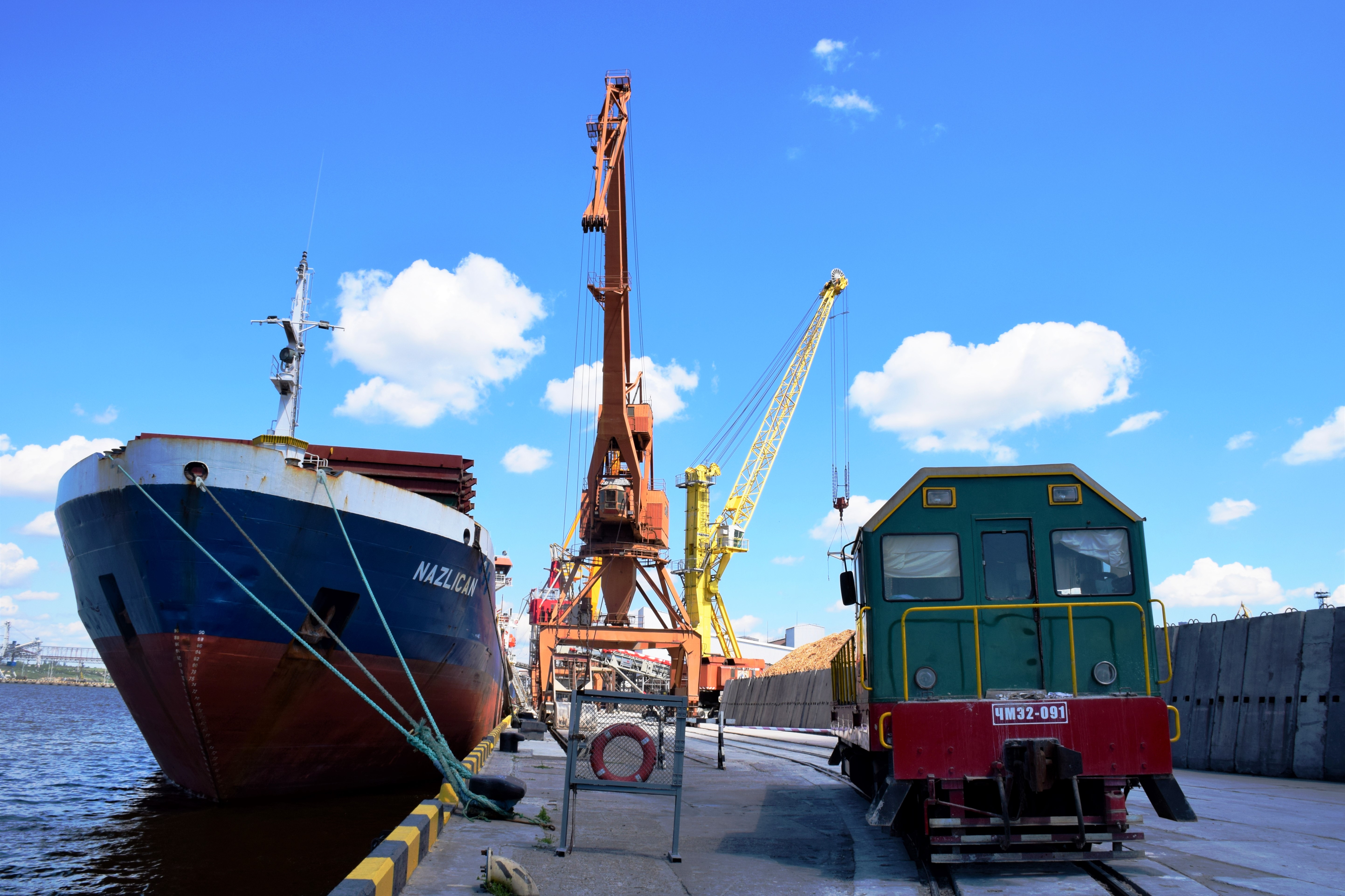In Q1 2021, Nika-Tera seaport, a member of Group DF, handled 1,420,000 t of cargo.
The key items within the cargo mix include:
- grains, legumes, oilseeds and products of their processing – 906,400 t (64% of the total volume of transshipment);
- solid bulk cargo (ground storage) – 329,000 t (23%);
- mineral fertilizers – 95,200 t (7%);
- sunflower oil – 90,000 t (6%).

«On average, in Q1 2021 the volume of transshipment fell down by about 20% across the industry and by 37% for grains. Unfortunately, our port was not an exception. The reasons for the decline in the industry were obvious, i.e. the pandemic and low grain yields in 20/21 MY. We saw this period of downfall as a time to regroup and strategically adjust our entire business model. We believe that the steps we ar taking now will allow us to reallocate transshipment capacities and expand the range of cargo handled. For example, in Q1 the seaport increased the transshipment of clay by 58.5%, sunflower oil by 32.4%, nitrogen fertilizers by 36% and phosphorites by more than 2 times. Creation of new centers of marginal profit is a part of our strategy at the times of pandemic», – commented Alim Agakishiev, СЕО, Nika-Tera seaport.
According to Agakishiev, the seaport made every effort to go through these difficult times for the economy and for the port industry with minimal losses.
«The crisis is an excellent opportunity for clients to stress-test the seaports. We see the crisis as a window of opportunities. It is important to retain existing customers and engage new ones. To this end, we must demonstrate our advantages every day. This is a business ideology for the port of a new generation. We want to implement all investment programs planned. A modern seaport is obliged to quickly change approaches and adapt to the market situation», – said Agakishiev.
According to him, the seaport expects the economy to gradually recover and, subsequently, to increase the transshipment volumes in Ukrainian seaports in H2 of 2021.
«We are saying it straightforward that we have some optimism associated with the projected increase in the harvest in 2021. For us, the grains remain the dominant type of cargo. The weather conditions this winter were better than the last year. Consequently, a good harvest will, in a sense, drive the entire seaport industry. Of course, the overall dynamics of Ukraine GDP will determine the trends for the entire seaport industry», summed up Alim Agakishiev.
Previously, it was reported that in Q1 of 2020, the seaport handled 1,087,000 t of cargo. The cargo mix was dominated by grains, legumes and oilseeds that accounted for 65% of the quarterly transshipment or 1,022,000 t. Bulk cargo accounted for 14% or 270,000 t, cake — 17% (320,000 t), and transshipment of oil — 4% (70,000 t).
Since the fall of 2011, the seaport became a part of Dmytro Firtash’s Group DF that invested more than UAH1.5 billion to develop it.
In 2020, more than UAH 60 million was invested in the seaport. The largest investment projects included modernization of cargo area No. 2, increasing the seaport’s railway car fleet.
In 2020, the seaport handled 409 vessels and transshipped 7,380,000 t of cargo. In 2020, within the cargo mix grains, legumes and oilseeds amounted to 5,550,000 t or 75 % of the total volume, bulk cargo – 1,270,000 t (18%), liquid bulk cargo – 323,000 t (4%), mineral fertilizers – 215,000 (3%).